Related Research Articles
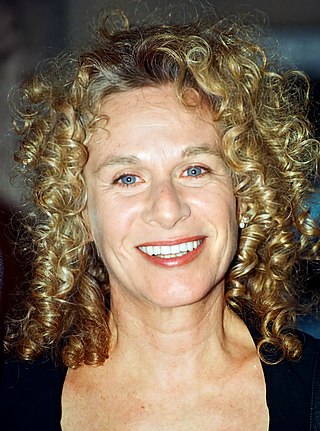
Carole King Klein is an American singer-songwriter and musician. One of the most successful songwriters in American history, she wrote or co-wrote 118 pop hits appearing on the Billboard Hot 100 over the latter half of the 20th century. King also wrote 61 hits that charted in the UK, making her the most successful female songwriter on the UK singles charts between 1962 and 2005.

Gerald Goffin was an American lyricist. Collaborating initially with his first wife, Carole King, he co-wrote many international pop hits of the early and mid-1960s, including the US No.1 hits "Will You Love Me Tomorrow", "Take Good Care of My Baby", "The Loco-Motion", and "Go Away Little Girl". It was later said of Goffin that his gift was "to find words that expressed what many young people were feeling but were unable to articulate."
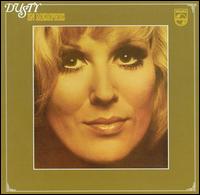
Dusty in Memphis is the fifth studio album by English singer Dusty Springfield, released on 31 March 1969 in the United States by Atlantic Records and by Philips Records internationally. Springfield worked on the album with a team of musicians and producers that included Jerry Wexler, Arif Mardin, Tom Dowd, conductor Gene Orloff, backing vocalists the Sweet Inspirations, bassist Tommy Cogbill, and guitarist Reggie Young. Initial sessions were recorded at American Sound Studio in Memphis, while Springfield's final vocals and the album's orchestral parts were recorded at Atlantic Records' New York City studios.
Steven Nicholas Jolley and Tony Swain were a successful songwriting and record production duo in the United Kingdom in the early to mid-1980s, producing some of the top artists and songs of the era.
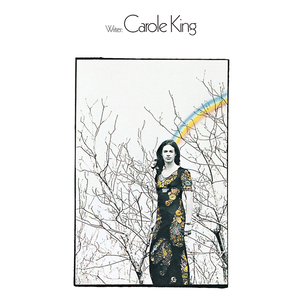
Writer is the debut studio album by American singer-songwriter Carole King, released in May 1970. King already had a successful career as a songwriter, and been a part of The City, a short-lived group she formed after moving to Los Angeles in 1968. Tracks on the album include "Up on the Roof" which was a number 4 hit for the Drifters in 1962, and "Child of Mine", which has been recorded by Billy Joe Royal, among others. The album did not receive much attention upon its release, though it entered the chart following the success of King's next album, Tapestry, in 1971. It was produced by John Fischbach, the co-founder of Crystal Sound studio, in Hollywood, California, where the album was recorded.

The Living Room Tour is a live album by Carole King released in 2005. It consists of live recordings of most of the songs from Tapestry. Her daughters Louise and Sherry and background singer and guitarist Gary Burr joined her on several songs. This album debuted at #17 in the US, becoming King's highest-charting album since 1977. That was largely due to television advertisements and that it was available in Starbucks retailers.

Carole King Music is the third studio album by American singer-songwriter Carole King. The album was released in December 1971.
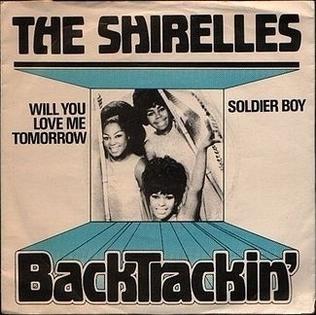
"Will You Love Me Tomorrow", sometimes known as "Will You Still Love Me Tomorrow", is a song written by Gerry Goffin and Carole King. It was first recorded in 1960 by the Shirelles; released as a single that November, it became the first song by an African-American girl group to top the Billboard Hot 100 chart. It has since been recorded by many other artists, including King on her 1971 album Tapestry.
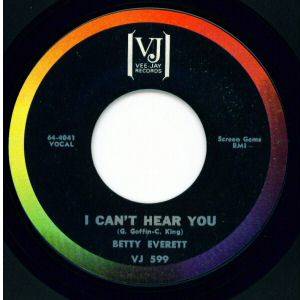
"I Can't Hear You No More" is a composition written by Gerry Goffin and Carole King. It was originally recorded as "I Can't Hear You" in 1964 by Betty Everett. The most successful version was the 1976 top 40 single by Helen Reddy.

Greatest Hits is a greatest hits album by Grand Funk Railroad, released in 2006.
Rock & Roll is the fifth album by American psychedelic rock band Vanilla Fudge, released in September 1969. It peaked at No. 34 on the Billboard album charts in October of that year. The album was the band's last studio album prior to their initial break-up in the spring of 1970.

"One Fine Day" is a song written by Gerry Goffin and Carole King. It first became a popular hit in the summer of 1963 for American girl group the Chiffons, who reached the top five on the Billboard Hot 100 chart. In 1980, King covered it herself and charted at No. 12 on the Hot 100 with her version, becoming her last top 40 hit. The song has subsequently been covered by numerous artists over the years.

Grand Funk Hits is a greatest hits compilation by Grand Funk Railroad originally released in 1976 on Capitol Records (LP-ST-11579). It peaked at number 126 on the Billboard 200.

"Up on the Roof" is a song written by Gerry Goffin and Carole King and recorded in 1962 by The Drifters. Released late that year, the disc became a major hit in early 1963, reaching number 5 on the U.S. pop singles chart and number 4 on the U.S. R&B singles chart. In the UK it was a top-ten success for singer Kenny Lynch, whose version was also released in 1962.

Thoroughbred is the seventh album by American singer-songwriter Carole King, released in 1976. Her final release on Ode Records, it was produced by Lou Adler, who had been her collaborator since Tapestry (1971). After Carole King self-produced for a number of years on Capitol and Atlantic Records, Lou Adler later rejoined King to produce her 1984 album Speeding Time.

"It Might as Well Rain Until September" is a 1962 single by Carole King, written by herself and Gerry Goffin.

Wax Museum is the eighth studio album by Jay and the Americans released on February 28, 1970. The album went to #105 on the Billboard 200 chart, reached #68 on the Cashbox chart, and #71 in Canada. The album was the group's last charting album.
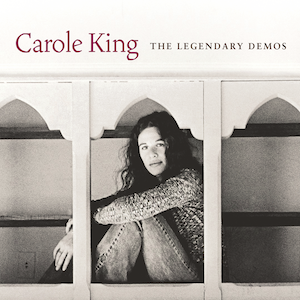
The Legendary Demos is a compilation album by pop rock artist Carole King. It was released on April 24, 2012 on Hear Music. The album contains thirteen demo recordings, ranging in time from "Crying in the Rain" (1962) to six tracks that appeared on King's 1971 hit album Tapestry.

"I Can't Stay Mad at You" is a song written by Gerry Goffin and Carole King. It was originally recorded by American country artist Skeeter Davis, becoming her second top-ten hit on the Billboard Hot 100 in 1963. "I Can't Stay Mad at You" followed on the popular success of Davis' earlier 1963 crossover hit "The End of the World". The song was one of the first Goffin-King compositions to be recorded by a country music performer.

"When My Little Girl Is Smiling" is a pop song written by Gerry Goffin and Carole King, and first recorded by The Drifters in 1961.
References
- ↑ "Rudy Lewis Songs, Albums, Reviews, Bio & More". AllMusic .
- ↑ Ertegun, Ahmet; et al. (2001). "What'd I say?", The Atlantic Story: 50 Years of Music. New York: Welcome Rain Publishers. p. 532. ISBN 978-1-56649-048-1 . Retrieved 3 February 2012.
'Some Kind Of Wonderful' by Carole King and Gerry Goffin, with Rudy Lewis on lead vocals, is released by The Drifters. It goes to #6 R&B and #32 Pop.
- ↑ Adams, Greg. "Wax Museum - Jay & the Americans | Songs, Reviews, Credits". AllMusic . Retrieved 2015-09-30.
- ↑ "The Drifters - 24 Original Hits (Vinyl, LP, LP, Album)". Discogs.com. 1975. Retrieved 2015-09-30.
- ↑ "Q-Tips* - Q-Tips (Vinyl, LP, Album)". Discogs.com. August 1980. Retrieved 2015-09-30.